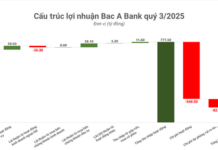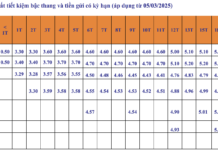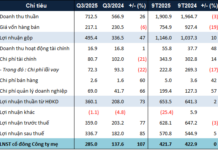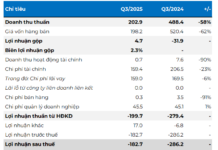“Shark Binh Sounds Alarm on the Dangers of Overreliance on Foreign E-commerce Platforms for Vietnamese Businesses”
Shark Nguyen Hoa Binh, Chairman of NextTech Group, recently posted a noteworthy share on his personal page. Specifically, Mr. Binh emphasized the urgent need for state intervention to protect local sellers from the growing dominance of foreign platforms.
“Transaction fees charged by e-commerce platforms should be placed under state regulation to prevent monopoly and provide relief to Vietnamese businesses suffering from arbitrary fee hikes imposed by foreign platform owners,” he stressed.
During a discussion on “Riding the Big Wave” at the Shark Tank Forum 7, Shark Binh also warned of the significant risks faced by Vietnamese sellers in the e-commerce space. He pointed out that e-commerce is no longer merely a “buy low, sell high” model but has evolved into a “root to tip” game, where manufacturers, especially from China, can directly reach Vietnamese consumers through these platforms.
The reality in China illustrates how e-commerce platforms are tightening their policies, leaving sellers at their mercy. Unreasonable policies, such as unconditional returns and refunds without returning the goods, along with stringent delivery time restrictions, have resulted in soaring operational costs while leaving sellers with minimal autonomy.
“These policies are extremely harsh on sellers. They can drive total e-commerce selling costs up to 40%, or even 45% of revenue, making it impossible to survive,” he exclaimed.

Given this reality, Shark Binh predicts an explosion in the “de-platforming” trend, where sellers will actively reduce their reliance on e-commerce platforms and establish their own sales channels—gaining control over customer data and the entire sales process. In China, this model is being promoted through WeChat Mini Apps, and Shark Binh believes that Zalo has similar potential in Vietnam.
“For example, when you sell on Facebook or e-commerce platforms, you get orders as long as you pump money into advertising. But stop, and the orders dry up. Even basic customer information, such as contact details and shipping addresses, remains with the platform. We will remain slaves forever if we don’t build our own sales channels,” he warned.
Beyond data ownership, Shark Binh also highlighted the significant shift in the global supply chain. As goods from China increasingly reach consumers directly, traditional resellers will face a slow death if they fail to adapt. He advised Vietnamese businesses to focus on researching and developing products with a unique Vietnamese identity and then outsource manufacturing anywhere, as long as they maintain control over quality and branding.
Finally, he emphasized the importance of investing in delivery capabilities to compete with cross-border logistics systems. Businesses should collaborate with professional delivery operators instead of handling logistics in a fragmented and uncontrolled manner. E-commerce is a race, and no one waits for the latecomers.
The Retail Sector Receives a Boost: Masan and The Gioi Di Dong Become the Center of Attention
“The inclusion of the retail market, including e-commerce, under a standardized framework and the eradication of temporary and makeshift markets will create a level playing field and enhance the competitiveness of modern retail chains. This move by MBS is a step towards fostering a fair and robust business environment, where all players, big or small, can thrive and contribute to the growth of the economy.”
“Courier Costs Cut: From 25,000 VND to 14,000 VND for Inner-City Deliveries, Says Proship Director”
The cost of shipping has decreased due to larger volumes of cargo and improved transportation infrastructure. This has led to a more efficient and cost-effective logistics system, making it more affordable to deliver goods to customers.
“Provincial Party Secretary of Tay Ninh Delivers Committing Speech at a Significant Conference”
With a thriving business landscape, Tay Ninh province boasts over 37,000 enterprises with a total registered capital of an impressive 912 trillion VND. In addition, the province is home to more than 3,000 domestic projects and nearly 1,900 FDI projects, showcasing its attractiveness to both local and foreign investors.










































